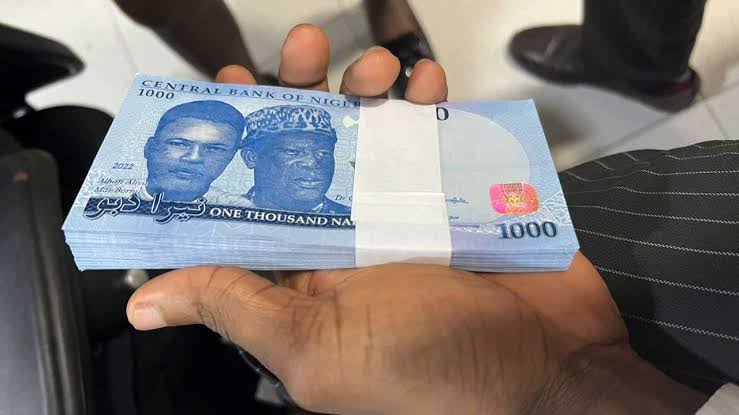🍔 Quick Bite: It’s been almost a month since the Central Bank of Nigeria (CBN) announced penalties for banks selling cash to Point of Sale (POS) operators, and yet the situation seems unchanged. Now, with a new circular imposing a ₦150 million ($97,000) fine on deposit money banks caught selling mint banknotes to currency hawkers, the question is whether this move will have any real impact—or if it’s just another ineffective policy in the face of a deeply systemic issue.
🧠 The Breakdown
Nigeria’s cash scarcity problem isn’t new. It started late last year when the CBN launched its controversial currency redesign policy. The idea was to curb counterfeit cash and reduce the money circulating outside of banks. But what followed was chaos: empty ATMs, long queues at bank counters, and people stranded without cash for basic needs.
Even though the currency redesign was shelved, the cash crunch didn’t go away. Instead, a thriving black market stepped in to fill the gap. POS agents and hawkers started selling cash at a premium, with freshly minted notes becoming a hot commodity. This system has made it difficult for many Nigerians to access cash without paying extra.
Is culture part of the problem?
One aspect of the problem is cultural. Mint notes hold a special place in Nigeria, especially during celebrations where wads of freshly minted Naira notes are sprayed at the celebrants to express good wishes. The demand for cash in perfect condition has created a lucrative black market that thrives on both social norms and systemic inefficiencies.
Will the fines work?
On the surface, the ₦150 million fine seems like a strong deterrent. Banks that engage in the illicit sale of mint notes stand to lose significantly, especially with the CBN’s ability to debit fines directly from their reserve accounts. However, enforcement is where the real challenge lies, and this will ultimately determine whether the policy succeeds or fails.
Banks handle thousands of cash transactions daily, and spotting illicit sales isn’t straightforward. In many cases, it’s bank employees who secretly divert mint notes to hawkers. These transactions are informal and don’t leave an obvious paper trail. Even audits might miss them unless there’s a clear way to track where the notes are going.
In a country as vast as Nigeria, where thousands of branches operate across diverse regions, it might be unrealistic for the CBN to monitor every location effectively. Even if the fines are enforced, there’s the question of whether they’re punitive enough to deter misconduct.
Implications for cash agents
POS agents and hawkers are key players in this ecosystem, especially in communities where bank branches and ATMs are scarce. They’ve become the go-to for cash, even though they often charge high fees.
Now, if banks tighten their grip on mint notes to avoid fines, what happens to these operators? They’ll likely face higher costs to source cash, which will then be passed down to the customers who rely on them. Agents are squeezed, and everyday Nigerians bear the brunt of it.
On the flip side, the scarcity of mint notes could also drive up demand on the black market. Hawkers might charge even higher premiums, creating an even bigger problem for the CBN to solve.
Final thoughts
The ₦150 million fine may look like a step in the right direction, but without stronger enforcement and systemic reforms, it’s unlikely to fix Nigeria’s cash crisis. Banks, hawkers, and POS operators are all part of a deeply ingrained system that fines alone won’t dismantle.
Until the CBN addresses the root causes—inefficiencies in cash distribution, cultural demand for mint notes, and a lack of transparency, Nigerians will continue to struggle with cash shortages and inflated costs. For now, this new circular feels like another temporary bandage on a wound that needs much deeper care.
📈 Trending Stories
Here are other important stories in the media:
- Billboxx secures $1.6M in pre-seed funding to scale SME invoice financing platform
- YC-backed internet provider Tizeti will become the first Nigerian startup to list on IPO-starved NGX
- Access Bank acquires South African Bidvest Bank for $159 million
💼 Opportunities
Jobs
We carefully curate open opportunities in Product & Design, Data & Engineering, and Admin & Growth every week.
Product & Design
- Codekeeper — UI/UX Designer, Remote
- Payaza — Product Manager, Lagos
- Duplo — Senior Product Manager, Lagos
- Zedcrest — Product Manager, Remote
- TalentUp Africa — Graphics Designer, Lagos
Data & Engineering
- Magic School — Software Engineer, Remote
- Moniepoint — Quality Assurance Analyst, Lagos
- Condia — Data Entry Operator, Remote
Admin & Growth
- Smile Outreach — Communications Associate, Remote
- Netheri — Technical Writer, Remote
- Curacel — Head of Marketing, Remote
- Condia — Sales and Partnership Associate, Hybrid
Get passive updates on African tech & startups
View and choose the stories to interact with on our WhatsApp Channel
Explore




